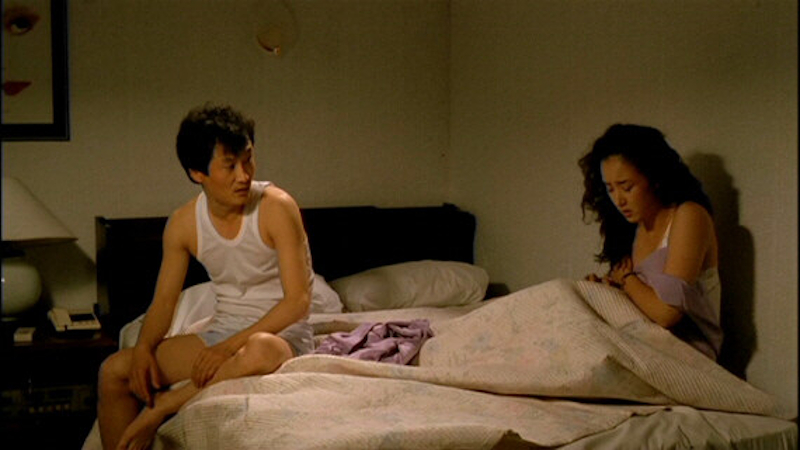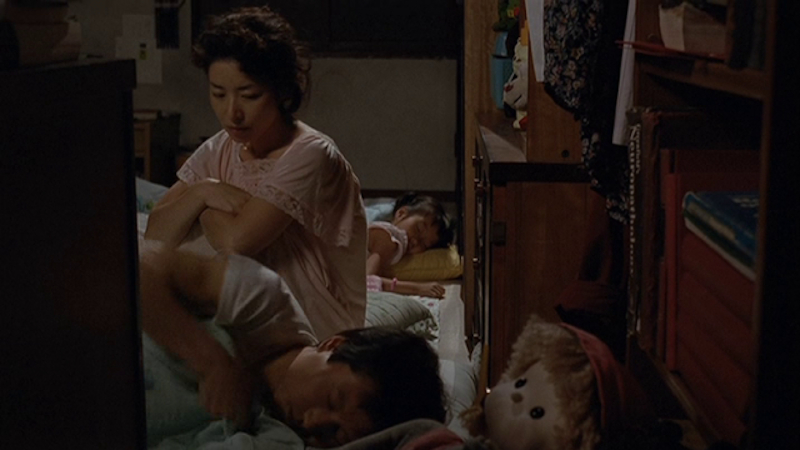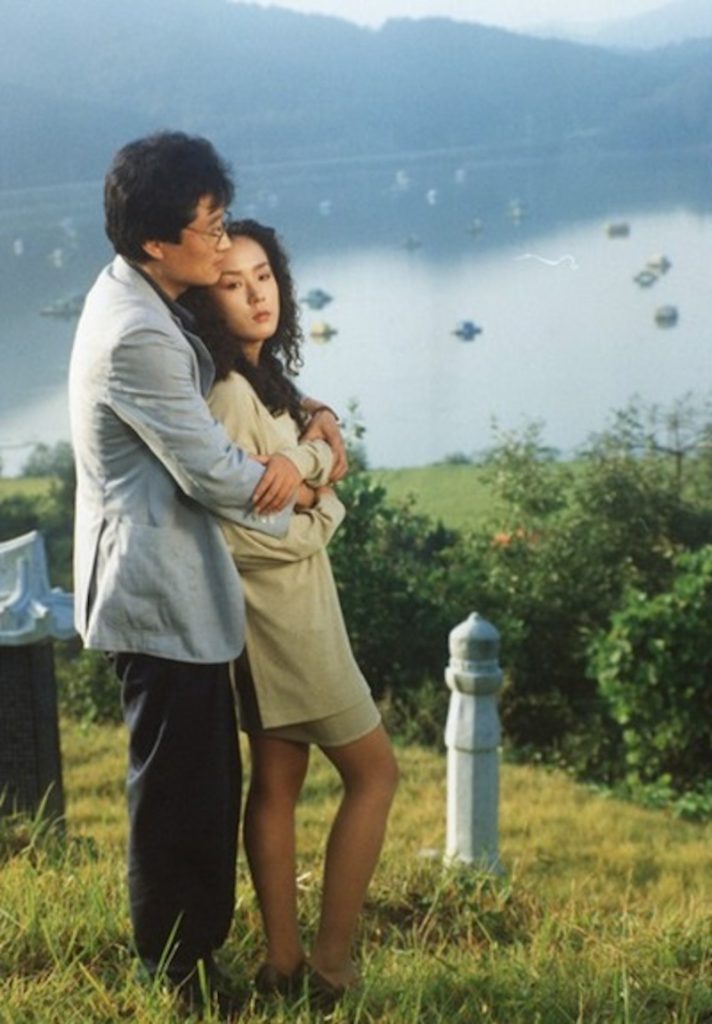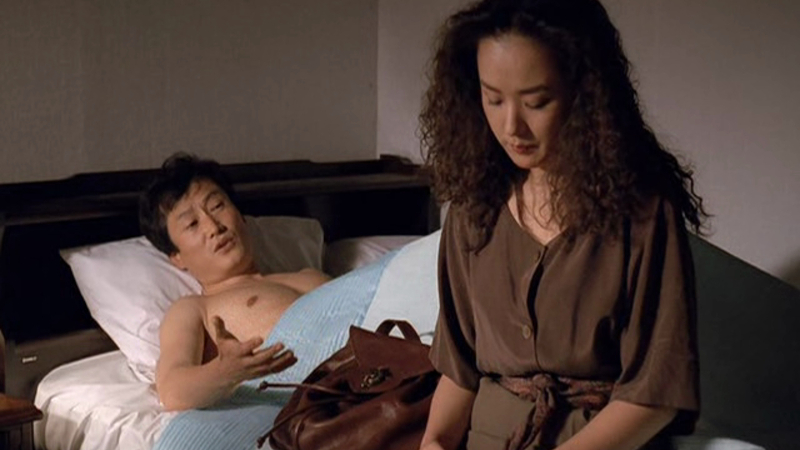Director – Jang Sun-woo – 1991 – South Korea – Cert. 18 – 138m
*****
An academic returns to Korea expecting to hook up with the woman student with whom he lived in Paris, and they meet up, but she now repulses his physical advances – part of a strand of films celebrating actress Kang Soo-Yeon (1966-2022) from LKFF, the London Korean Film Festival which runs in cinemas from Thursday, November 3rd to Thursday, November 17th
As soon as R (Moon Sung-keun) arrives at the airport in Korea, he makes contact with J (Kang Soo-Yeon) and they get a room together, but she confounds his expectations by fending off his attempts at physical sex with her. This wasn’t what he was expecting, since she seemed willing enough when they lived together in Paris. He is desperate to have sex with her, but instead she offers to drive him first to the bus station and then to his home town, where he is reunited with his wife (Kim Bo-yeon), kids and extended family.

Whatever affection he once had for his wife has long since evaporated, and he callously repulses her attempts at intimacy in the bedroom. Brief scenes between the husband and wife punctuate the remaining narrative, the wife becoming increasingly hostile. He wants a divorce. She wants the security of their marriage, even if it’s loveless, and won’t sign the papers.

For R, however, all that’s a sideshow to the main event. However, his inability to get a divorce casts a shadow over his relationship with J. That relationship plays out in occasional walks together, numerous lengthy conversations in coffee shops and his repulsed advances towards her in fields, cars and (mostly) motel rooms. She claims to be on the verge of marrying someone else (who we never see) until R persuades her to spill the beans to this man about the Paris relationship, which ends the possibility of this marriage. Unless, of course, all that was a fabrication on J’s part: it’s hard to tell.
It becomes increasingly clear that both took advantage of the other – R wrote J’s Ph.D. thesis for her since she lacked the ability, although she subsequently rewrote it and got it published in a magazine, which suggests she might be more capable than he supposed. But then she admits to him that her reworkings aren’t as good as his original writing.

R is persistent, and eventually J gives in to his physical advances. Which is to say that we are shown her resisting him, him forcing himself on her, and then her slowly starting to enjoy it – which develops into her experiencing full-blown passion and ecstasy, apologising for messing him around, and swearing she’ll stay with him.
It all seems too good to be true, and it doesn’t last. It seems remarkably similar to what befell the same actress in Come Come Come Upward (Im Kwon-taek. 1989), which perhaps tells us something of the Korean social mores of the time it was made – and what was unreasonably expected of actresses in Korea’s male-dominated film industry in terms of the way scripts were written.

It is, of course, impossible to watch the film today without viewing it with modern eyes. In its day, it was a modest box office hit in Korea after being sold as a portrait of intellectual types, which was lapped up by young audiences. Moon’s R looks contemptible and pathetic, and is generally far too wordy.
Faced with a script that promotes the dubious suggestion that women enjoy and welcome rape, as it leads to physical fulfilment, Kang turns in a tremendous and fearless performance as J. As her intentions with regard to R and loyalties shift and slide around, their interaction proves strangely compelling as a series of sketches of an abusive relationship which dare not describe itself as such. If the movie were to be made today, it would not look exactly like this: as such, it presents a fascinating glimpse into Korean sexual attitudes of the time.

A couple of sequences of R walking have him refer to the distance in two directions to the eponymous race track. What this means specifically, I have no idea. I’m guessing the race track refers to the male character’s desire for fast living (i.e. sexual gratification) but I could be way off. The title comes from the book of which the film is an adaption.
The Road To The Race Track plays as part of a strand of films celebrating actress Kang Soo-Yeon (1966-2022) in LKFF, The London Korean Film Festival which runs in cinemas from Thursday, November 3rd to Thursday, November 17th.
Sadly, no trailer is available for this film.
LKFF 2022 Trailer:
LKFF 2022 Opening Night: Alienoid + Q&A
LKFF 2022 Closing Night: Hansan: Rising Dragon + Q&A
Special Focus: Kang Soo-yeon (includes free screening – booking essential)
Touring Programme (Glasgow, Manchester)
